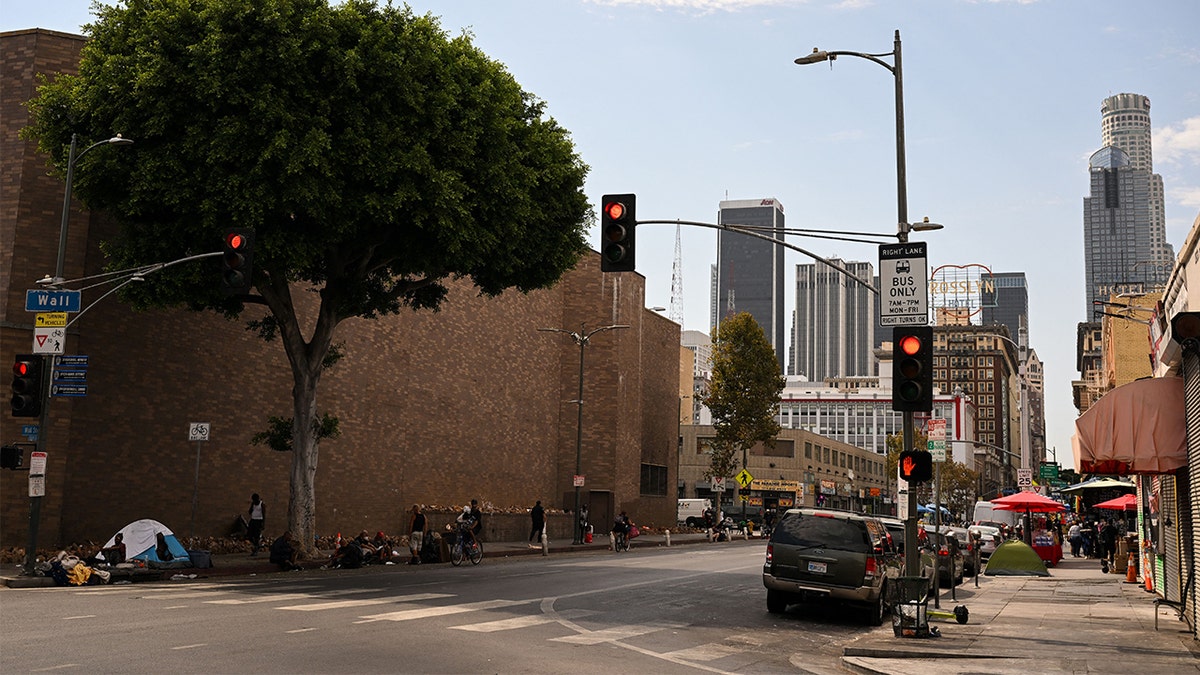Jared Klickstein, former Los Angeles addict, says political policies not working
Former Skid Row addict Jared Klickstein joins 'Jesse Watters Primetime' to sound off on homeless, drug crises.
A former addict who used to live on Los Angeles' infamous Skid Row told Fox News on Tuesday that a lot of what California's political leadership is doing to combat the crisis is not working.
On "Jesse Watters Primetime," host Jesse Watters reported homelessness is up 20% in Los Angeles as of late, despite Gov. Gavin Newsom reportedly spending another $3 billion to fight it according to the host.
Newly-minted Mayor Karen Bass – a former Democratic congresswoman – appointed a new homelessness czar, which Watters called "the same Democratic plan – spend, spend, spend while the homeless sink deeper into despair."
Watters then spoke to Jared Klickstein, who was once addicted to controlled substances, ended up in prison and later reformed himself and is recovered from addiction.
AZ CHILD DIES AFTER INGESTING FENTANYL PILL

People camp in tents under a shady tree on the sidewalk near Skid Row during a heat wave in downtown Los Angeles, California on September 2, 2022. (PATRICK T. FALLON/AFP via Getty Images)
"I think that the people that are in charge are coming with compassion, but what they're doing is not working," Klickstein said.
"People need to be incentivized to get sober. And right now they're being incentivized to kind of do whatever they want – do fentanyl in the streets, commit crimes to support their habits – and it's just not going to fix anything."
Klickstein recounted his journey onto and out of Skid Row, saying he was able to leave the drug-infested strip by getting arrested and serving six months in county jail, which he said cured him of his addiction on the physical side of things.
"But see, a big component of addiction is the mental addiction. So jail didn't really do that for me. So what I'm proposing is maybe mandated long term treatment – 1 to 2 years of treatment where we treat psychiatric issues, job training, you know, prepare people for a life that's worth living when they get out," he said.
NORTHWEST GEORGIA HOME DRUG OVERDOSE LEAVES THREE DEAD

Jesse Watters (Fox News)
Some addicts need to hit rock bottom before they can get well, he said, adding that he never recommends prison as the best way to get sober.
As for the state and city expenditures aimed at the drug and homelessness crisis, Klickstein said the prevalence of housing vouchers are not effective because they only really help those homeless who are in that predicament for economic reasons.
"If you're homeless because you're impoverished, maybe that helps. But we're seeing the vast majority of these homeless people on the streets of urban centers like Los Angeles and San Francisco, these people are addicted to fentanyl and meth," he said.
"And giving them a studio apartment is not going to solve that problem: It's going to give them a place to overdose on fentanyl."
Klickstein reiterated the most important way to combat addiction is to treat the underlying problems and causes instead of "handing out apartments."
Regarding Newsom's reported profligate expenditures on the crisis, Klickstein remarked he could probably fix Los Angeles' particular problem for a quarter of what Sacramento is spending.









































